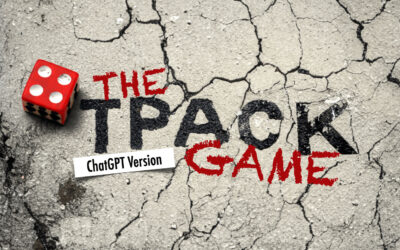How might we?
Three words, and a question mark. At one level it is a simple question—leaving open what it is that we might do. But at another level its openness is its strength. Because inherent within it is a call to action, a discomfort with the way things are, and an openness to change. And as Lisa Wyatt recently communicated to me, “the question inherently recognizes that there are many ways to answer the question, not just one.”
This past semester 14 student-teachers asked powerful “How might we?” questions about their own practice and came up with solutions that were unique, creative and impactful. In ways big and small.
It all began, as one can imagine, with a “How might we?” question of our own.
How might we improve the student-teacher experience?
Alternatively…
How might we empower student-teachers to develop a designers mindset? A mindset that allows them to see themselves as designers of curriculum rather than mere users of curriculum?
Our answer to this question was recently featured in a recent news story on the MLFTC News titled: Student teachers learn to be creative problem-solvers. (Note: Other related links are given below.)
The students’ how might we questions emerged from their own experience and in each case they worked in teams to design and more importantly test possible solutions in their classrooms. The story linked above has more information but here is a key quote, from Melanie Bertrand, faculty fellow with OofSI, speaking to what she observed:
“I could see that the experience was very empowering for the students. I think these experiences teach future or new teachers that knowledge about how to improve teaching doesn’t lie just with the mentor teacher or with some researchers who are considered experts, but rather with them as well.
This project would not have been possible without support and feedback from a wide range of people. The include the leadership of the Teacher Preparation program, Michelle Amrein, site coordinator at the school, and a team of mentor teachers. Finally thanks to Lisa Wyatt and the rest of the design initiatives team for taking the lead and asking the how might we question.
Related Links:
- OoFSI What’s New (8/27/18): Today’s Changemakers: A big big job
- OofSI What’s New (10/9/18): Dear student teachers
- OofSI What’s New (12/18/18): Student teachers + design thinking = Changemakers
- MLFTC News Story (12/21/18): Student teachers learn to be creative problem solvers




0 Comments